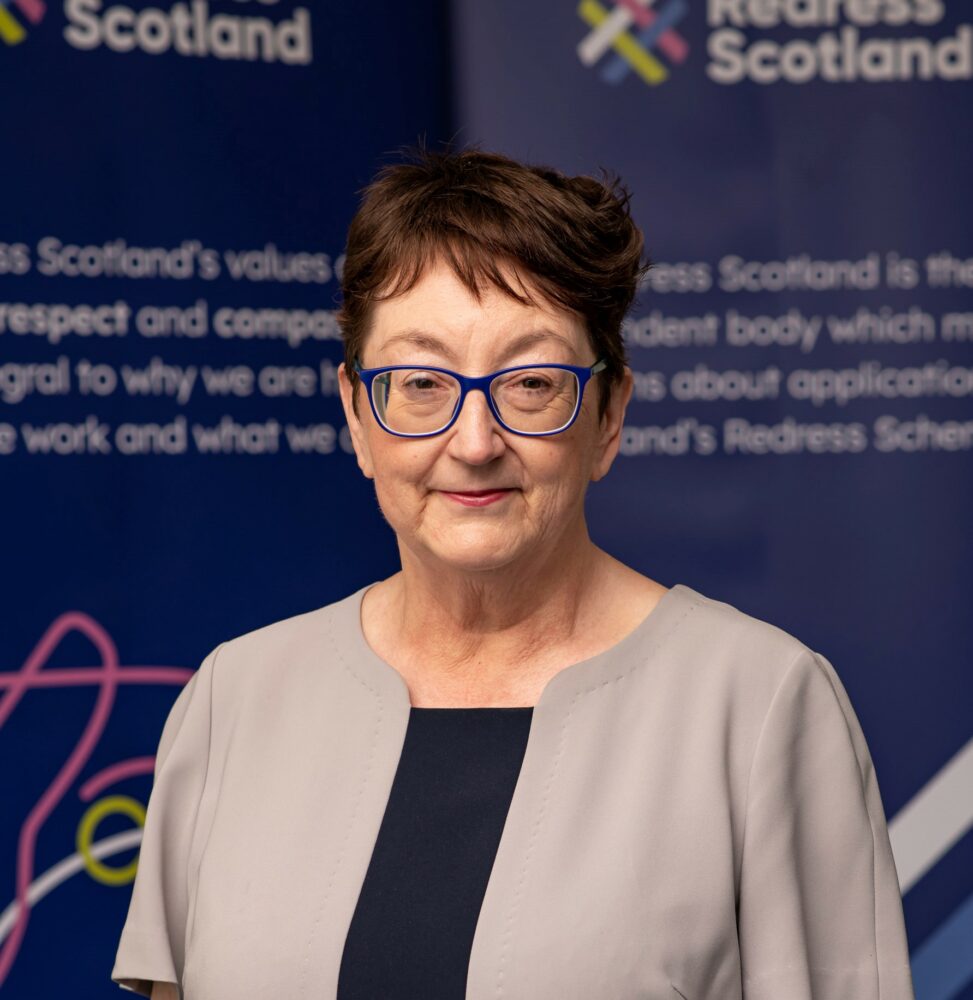In this instalment of the Redress Scotland Panel Member Voices series, Sandra Campbell speaks about her hope for applicants.
Sandra has spent more than forty years working closely with children, young people, and families in Scotland and England – both as a social worker and a senior manager.
When she isn’t sitting on a panel or serving as convener of the Scottish Social Services Council, Sandra enjoys reading, gardening, and walking her dogs near her rural highlands home.
Sandra spoke to us about becoming a Redress Scotland panel member, saying:
“I became a panel member because I wanted to make a difference. Through my career I’ve seen both the positive and negative impacts that being in care can have on people’s lives. As a Redress panel member, I feel that the knowledge and experience I’ve gained helps me to have empathy and an understanding.
“I’ve enjoyed getting to know the other panel members and am impressed by the range of experience they each bring to the role. I’ve learned so much from speaking with them, and they challenge me to continually put our training into practice. “
Sandra understands the barriers survivors might face when applying for redress and wants to assure them that they will be heard and their experiences understood, explaining:
“For many survivors, sharing your experiences can be very painful, but it can also be part of a healing journey. To have this part of the journey heard and validated by a redress panel, can help some people find an element of closure.
“I want survivors to know that their application will be given full respect and attention from panel members who are highly experienced and non-judgemental. I know that it may be difficult to decide to apply, but Scotland’s Redress Scheme has been designed to give you all the support you need to complete your application.
“Redress Scotland is also meeting with survivors, and I hope that in time dialogue with the Survivors Forum will provide opportunities for us as panel members to grow our understanding of the needs and desires of survivors and their families.”

